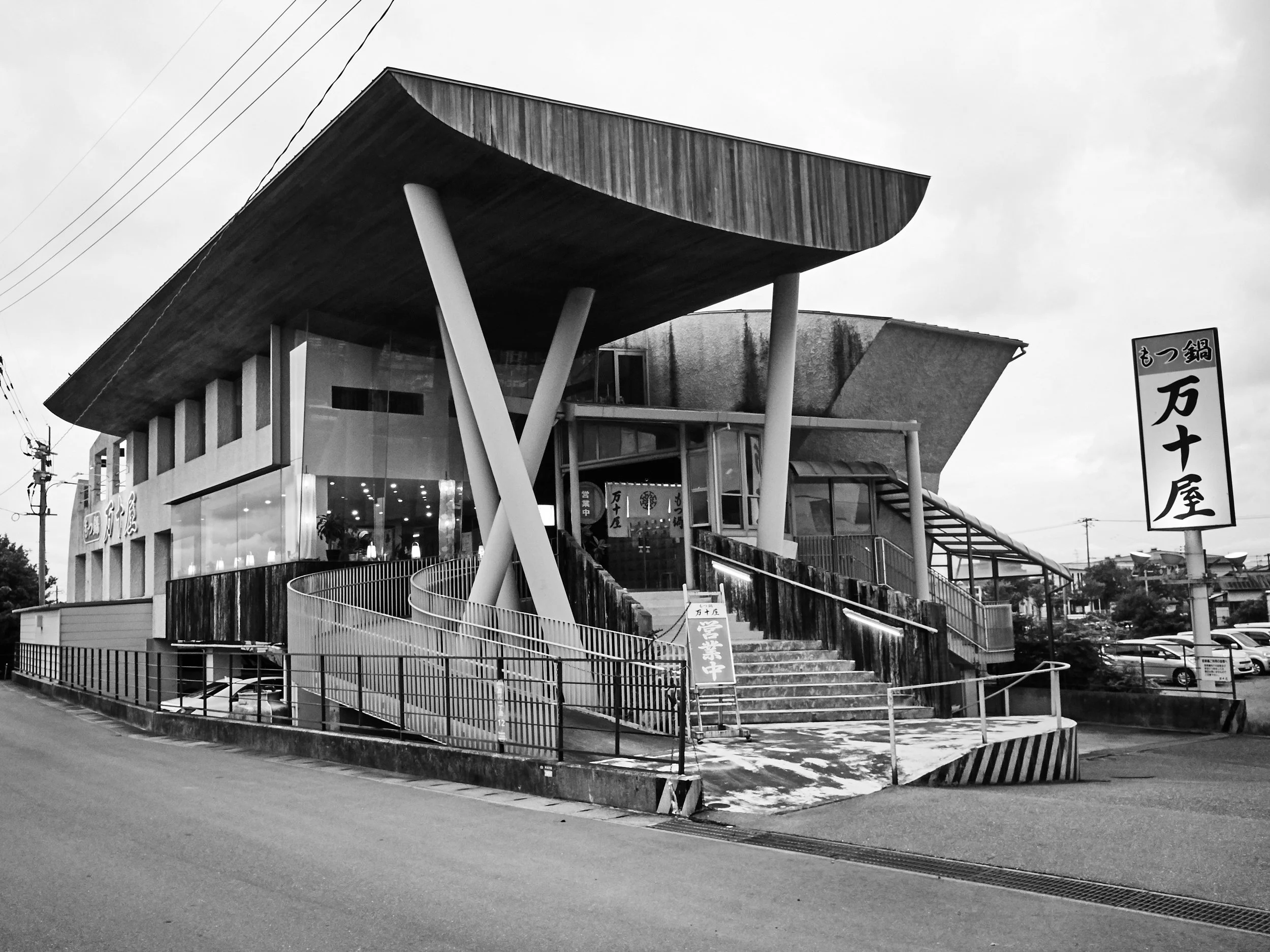The spirit of Kyushu.
The old lady walked to our table with a deep narrow bowl of beef intestines and pork offals soaked in fat, sesame seeds and marinade. She poured it right into the stone pot in the middle of the table, followed by a mountain of cabbage, enoki mushrooms, then another layer of garlic chives.
Please do not touch this, she said before turning the heat to high, and walked away.
Five minutes later all the ingredients had sunk into the pot, the fat melted and shimmering on top of the stock, bubbling in aggression. The lady returned to give a pot a good stir. She scooped out and adjusted the fat to her liking, and announced that it was ready.
It's not difficult to figure out the stock - soy sauce, sugar, miso, most likely locally made. Combined with the melted fat it was probably too thick too heavy too sweet to drink by its own. Even if you're squirmish with innards, you should chew it properly, appreciate the texture, and swallow with a sip of water because a nice old lady had spent her limited remaining life to prepare a dish for you.
We have a thing for hot pots. I assume it's something primitive, like how our ancestors gathered around borne fires. A hot pot, be it a Korean Jigae, or Hong Kong Da Bin Lou, or Malaysian steamboat, or a Chinese Ma la huo guo or in this case - motsunabe at a restaurant straight out of a JRPG game in Fukuoka , brings people together. There's a sense of reunion if not unity that we are kinda in this together, even if it's food poisoning.
But since the restaurant is cooking I think we're safe.
Plus, we get to eat more if there are more of us.
I imagined for many Japanese it tastes like home cooking.
'Taste' is probably the wrong word, it probably 'feels' like home cooking.
I asked for rice, but Chika's dad gave me this look: no, young man, you're not ready for rice yet.
The lady (it's weird, all staff in the restaurant are female - not a single man in sight) chucked a fishnet basket worth of noodles into the pot, good to go in another five minutes. We ate nothing but noodles and sauce. The unmistakeable earthy taste of kansui from the noodles pierced through all the layers of sweet, savoury and the thick fat umami. If I have to relate, it tasted like the Malaysian Ulu Yam style Lor Mee.
Once we're done, The old lady returned with more stock. She poured in two serves of rice with a cracked egg. The stock reduced and the rice crisped at the bottom, like a bibimbap, reminding us of the existence of the stone bowl. We were given pickles to finish it off like pan fried rice balls.
Every time I say my wife is from Fukuoka, I'll be at the receiving end of the question: Have you tried motsunabe yet? And did you like it?
I never fully understood the big deal behind it because from photos it looked like a big pot of stew with, well, organs. The translation is literally 'organs in a pot'.
But now I think I get it. When people ask if you've been to karaoke, they don't really mean if you like singing off key to random words down the screen with pirated video of random couples in the park. The point isn't the dish.
It's the anticipation, the drive there, the greetings, the tatami mats, the beers. It is waiting for dad to finish and deciding to have three serves of champon noodles, only to ask for two more. The ingredients are dead simple, probably invented when there was no choice of meat. But with the sauce that passed through generations and the honest ingredients breaking down slowly, it became a soul-healing stew, a noodle dish, fried rice. All in one. It is the meal to conclude Sunday and be mentally prepared for Monday. A reminder that we once came from a simple place. That we do not need much to be happy, which I think is the general life philosophy of Kyushu.
So when people ask if you've tried motsunabe, they are asking if you've experienced real hospitality. Are you still a tourist, or have you been baptised?
So yes I have, and it was delicious.
Thank you old lady.















